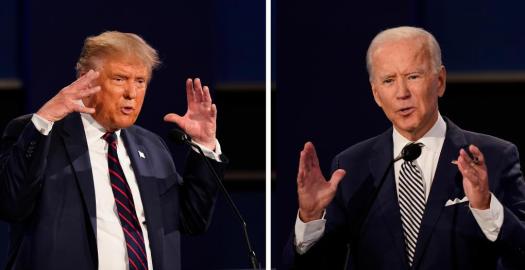There Is Only One Existential Threat. Let’s Talk About It.
Tropical Storm Iota Deals Devastation to Central America Still Recovering from Eta
What Keith Richards Can Teach Us about Beating Our Donald Trump Addiction
The election naturally commanded our public thoughts; now it’s done. Trump perpetually has commanded our attention; finally the fixation may be waning. COVID more than ever forces itself on our presence; a quarter of a million people have now died from it in the U.S.
But the issues of climate change, more formidable than ever, keep bearing down on the world with dreadful frequency and energy. For many, climate issues have recently gotten displaced by politics, but nature is not about to let us discount her power.
Those who live in California won’t soon forget the massive fires that swept their state and are still a threat. Two massive hurricanes a week apart just pummeled Central America, saturating the same areas (an unheard-of event) in Honduras and Nicaragua, “seriously affecting” some 3 million people, and causing many deaths. Hurricane Eta alone in a few days “cost Honduras the equivalent of around twenty per cent of its gross domestic product.”
The campaign and the election have turned into a major distraction from climate change. The political media, the voters and the candidates all gave climate short shrift. Biden was the exception. He has offered a $2 trillion clean energy plan, and proposes to incorporate climate into most other policy areas. If any of this gets done, at least through regulation (if the Senate is a nonstarter), it will be a good beginning.
New York Times writer Farhad Manjoo puts it in context:
But passing a climate plan wouldn’t be a partisan win for Democrats—it would be a win for human beings. Climate change isn’t a policy issue—it’s a reality that every other political question hinges on: jobs, tax policy, national defense, and the size and scope of the welfare state. As climate change becomes increasingly damaging, we will have to think about all of these issues through the larger response to a changing planet.
It’s just too easy to compartmentalize our thoughts about climate. The enormity and extent of what it represents are simply daunting, maybe beyond the ken of most of us. Moreover, our political culture, the media pundits, and of course social media all tend to trivialize and downplay the issues of climate in favor of the latest political sensation.
Well, clearing the ground by getting rid of the Trump addiction might be a first step. John Harris of Politico had some thoughts on this and used the old drugmeister Keith Richards of the Rolling Stones as an example of how to get clean and kick the Trump obsession. Keith learned not only to ignore the junkies around him but to sit back and enjoy their performance.
Harris puts it this way: Trump learned early on
that once you provoke someone into an emotional response they are in a contest on your terms. So he learned how to surprise, to entertain, to confuse and distort, to offend. As he moved to the political arena, Trump exploited one more psychological reality: His supporters are attracted to him precisely because he so easily outrages his opponents.
This means that Trump’s power—just like Keith Richards’ drug transactions—requires two sides to work. His hold on supporters will wane at the same time his hold on political foes and the news media does. Just say no and watch their faces.
This is not like Nancy Reagan’s “Just say no.” It’s the satisfaction in watching a performance that you no longer need to participate in. Maybe that would be a first step to reclaiming the climate values that so drastically need our attention.








 As the proceedings concluded, senator Dianne Feinstein, the senior Judiciary Committee Democrat, gave Chairman Lindsey Graham a big hug and complimented him for leading “one of the best sets of hearings that I’ve participated in.”
As the proceedings concluded, senator Dianne Feinstein, the senior Judiciary Committee Democrat, gave Chairman Lindsey Graham a big hug and complimented him for leading “one of the best sets of hearings that I’ve participated in.”

